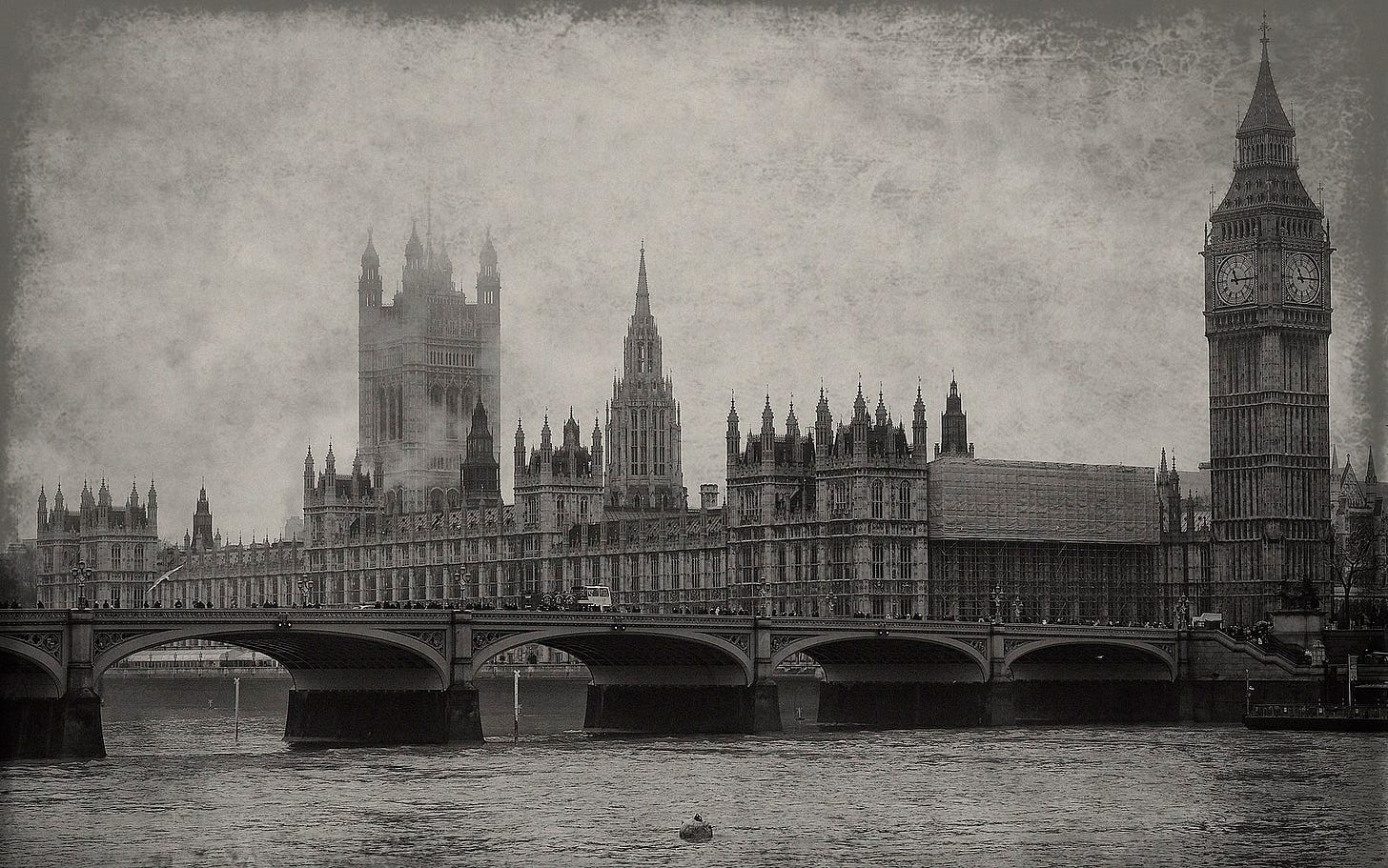Notes from Across the Pond
On the Teaching of Literature
This has been an unusual summer in London. July witnessed the highest temperatures ever recorded: 104.5 degrees Farenheit. Train services to and from the capital were suspended. Network Rail shared pictures of smoldering, buckled tracks on social media. As houses spontaneously erupted in fire the London Ambulance Service was fielding 400 calls an hour for heat-related incidents. Britain was forced to declare a national state of emergency.
As luck would have it, I arrived in London with my two boys on July 19 -- the hottest day on record. Indeed, in my eight years of living here as a graduate student in what feels like a prior life, the English summer had never borne this kind of fruit.
Turns out it’s a summer of firsts here -- according to an investigation by The Times universities in Britain have contracted the ‘harm’ virus from their American cousins. For the first time they are removing ‘harmful’ literature from reading lists to protect students from ‘challenging’ material. Let’s take a quick look at the titles that have been struck off.
The University of Essex has permanently withdrawn Colson Whitehead’s 2017 Pulitzer-winning novel The Underground Railroad because of its “graphic description of violence and abuse of slavery”. At the University of Exeter, students can opt out of reading Mary Prince, the first narrative of a Black woman to be published in the UK, in 1831, to avoid the “graphic accounts of slavery”. History students at Lancaster University can choose not to read The Diary of Thomas Thistlewood, the testimony of a Jamaican slave owner, because it has details of “sexual assaults and extreme violence”. Eimear McBride’s A Girl is a Half-Formed Thing, Evie Wyld's All the Birds, Singing, Thomas Meinecke’s Tomboy: the list of possible opt-outs goes on.
There is a lot to say about the ‘wisdom’ of British universities in making this move. For one, scrubbing the curricula clean of the voices that give us an insight into the violence of slavery does students a disservice -- their understanding of history will be distorted and shallow. As Trevor Phillips, Chairman of the Index on Censorship, put it, students shouldn’t be shielded from history; they should “be more aware of the realities of the past, unmediated and unsanitized.”
But it strikes me that there is another problem with this approach. The notion that students may be ‘harmed’ by works of literature is predicated on a profound misunderstanding of the value of literature.



